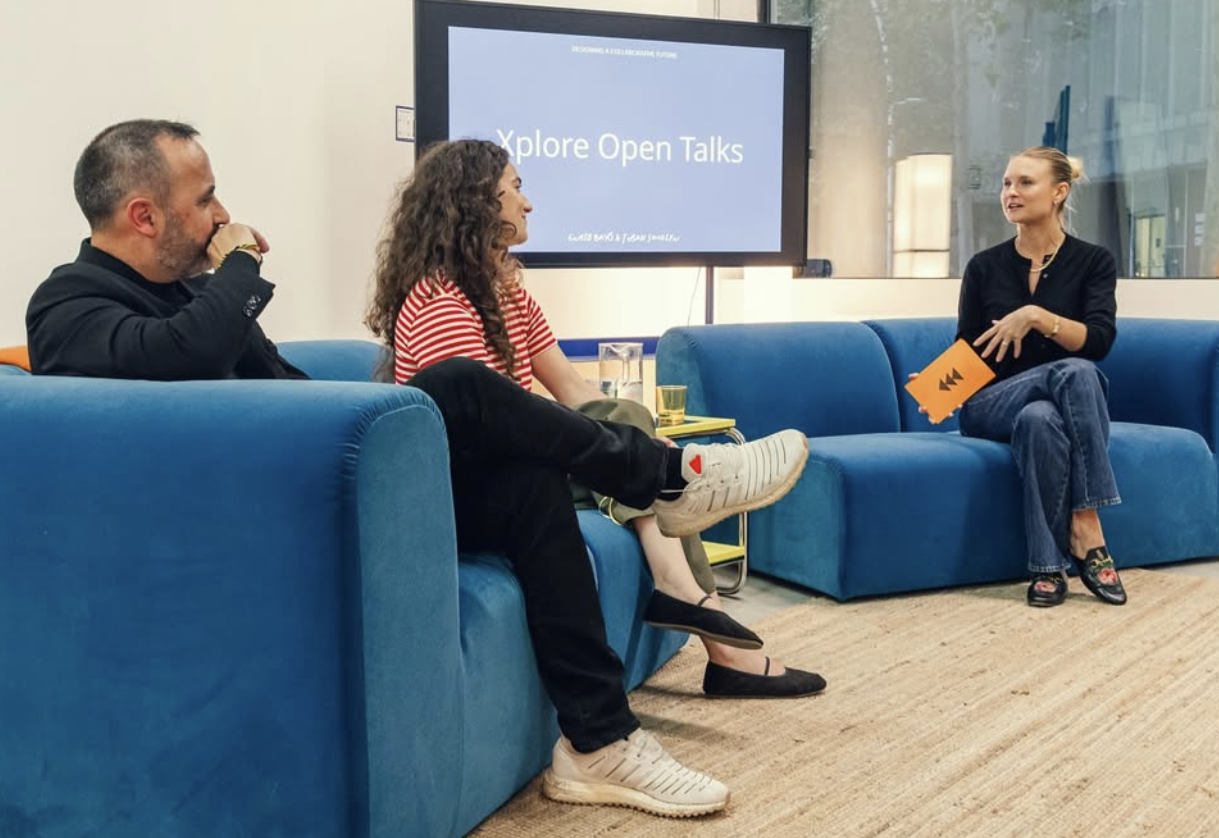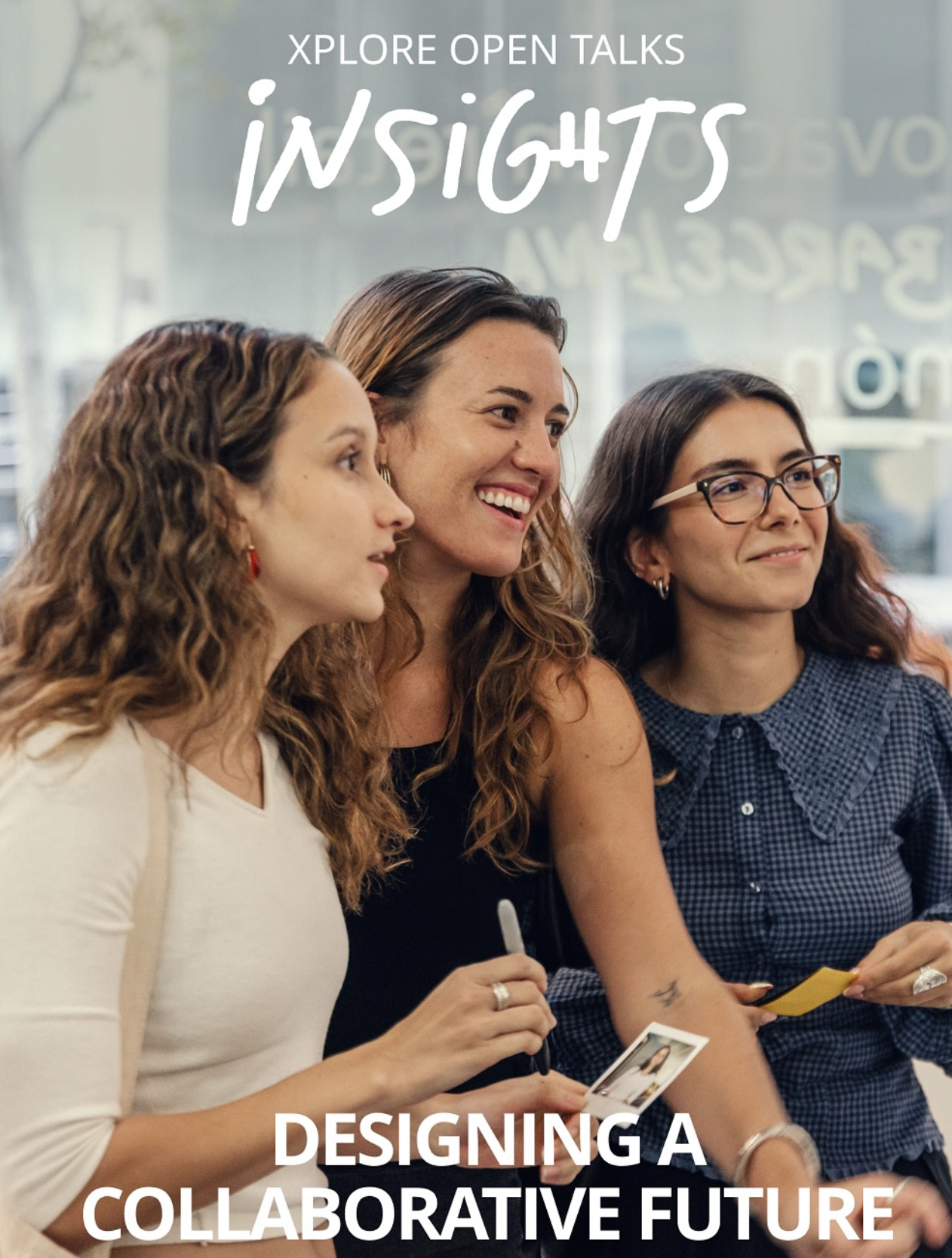Ikea’s Xplore Studios
Talk

I had the opportunity to join a panel hosted by IKEA’s Xplore Studio in Barcelona to discuss collaboration and the future of retail. These settings are helpful pulse checks for me: a chance to listen for what’s emerging, what’s absent, and how people are making sense of the moment we’re in. Below are a few takeaways from this discussion.
![]()
1. We’re still not fully grappling with our interdependent reality.
Barcelona has recently experienced intense drought emergencies and a multi-country power outage. These moments don’t just disrupt routines, they reveal how tightly linked our systems are. And they raise important questions for design, supply chains, and collaboration. A former student of mine recently shared Thomas L. Friedman NYT’s article proposing the term “Polycene” for the era we’re in. It caught my attention because my colleagues and I used the same term years ago to describe the condition of now. The panel reminded me how often we talk about innovation or retail without acknowledging the deep interdependence that underpins everything. Friedman uses the example of a smartphone chip imagined in California, designed with tools from Europe and the U.S., manufactured in Taiwan using Dutch lithography and Japanese/Silicon Valley materials science, assembled in China, and distributed globally. Swap the chip for a couch and you’d get a similar story.
For me, this is the ongoing work of balancing planetary consciousness (recognizing the global condition) and how this sits alongside our conversations on the ground such as building resilient food systems, regional production, and resilient supply-chains.
![]()
2. Collaboration requires intentional conditions, incentives, and purpose.
Given how interconnected today’s challenges are, no single actor can meaningfully address them alone, and that has real implications for how we think about collaboration. This requires developing relational foundations, perhaps shared purpose, or even alignment on certain fundamental “truths” / “opinions”.
And this is exactly the part we often don’t make space for. Our structures and organizations aren’t typically designed—or incentivized—to prioritize the slow, messy work of relationship-building. When speed becomes the default condition, we end up rushing past the very foundation collaboration requires.
What happens then is predictable:
This is why conditions, incentives, and purpose matter so much:
The most meaningful and resilient outcomes I’ve seen come from teams who invest in the early relational work. Without that, coordination is fragile. With it, creativity emerges at intersections rather than within silos.
![]()

1. We’re still not fully grappling with our interdependent reality.
Barcelona has recently experienced intense drought emergencies and a multi-country power outage. These moments don’t just disrupt routines, they reveal how tightly linked our systems are. And they raise important questions for design, supply chains, and collaboration. A former student of mine recently shared Thomas L. Friedman NYT’s article proposing the term “Polycene” for the era we’re in. It caught my attention because my colleagues and I used the same term years ago to describe the condition of now. The panel reminded me how often we talk about innovation or retail without acknowledging the deep interdependence that underpins everything. Friedman uses the example of a smartphone chip imagined in California, designed with tools from Europe and the U.S., manufactured in Taiwan using Dutch lithography and Japanese/Silicon Valley materials science, assembled in China, and distributed globally. Swap the chip for a couch and you’d get a similar story.
For me, this is the ongoing work of balancing planetary consciousness (recognizing the global condition) and how this sits alongside our conversations on the ground such as building resilient food systems, regional production, and resilient supply-chains.

2. Collaboration requires intentional conditions, incentives, and purpose.
Given how interconnected today’s challenges are, no single actor can meaningfully address them alone, and that has real implications for how we think about collaboration. This requires developing relational foundations, perhaps shared purpose, or even alignment on certain fundamental “truths” / “opinions”.
And this is exactly the part we often don’t make space for. Our structures and organizations aren’t typically designed—or incentivized—to prioritize the slow, messy work of relationship-building. When speed becomes the default condition, we end up rushing past the very foundation collaboration requires.
What happens then is predictable:
- When things inevitably get hard, there isn’t enough trust to hold the work.
- Partnerships strain, communication falters, and outcomes suffer.
- Or we fall back on working only with people we already know (because the foundation is there) which inadvertently excludes the new voices, perspectives, and stakeholders who actually need to be part of these collaborations.
This is why conditions, incentives, and purpose matter so much:
- Conditions: Time for relationships and shared understanding has to be recognized as real work—not a luxury or “nice to have.”
- Incentives: We need systems that reward collaboration itself, not just outputs or speed. Funding, recognition, governance, and metrics shape the behavior.
- Purpose: Collaboration needs a shared “why,” and enough room for curiosity and co-creation—not just absorbing diverse partners into pre-set frameworks.
The most meaningful and resilient outcomes I’ve seen come from teams who invest in the early relational work. Without that, coordination is fragile. With it, creativity emerges at intersections rather than within silos.

Related Press / Publications
Xplore Studios on Instagram
Index